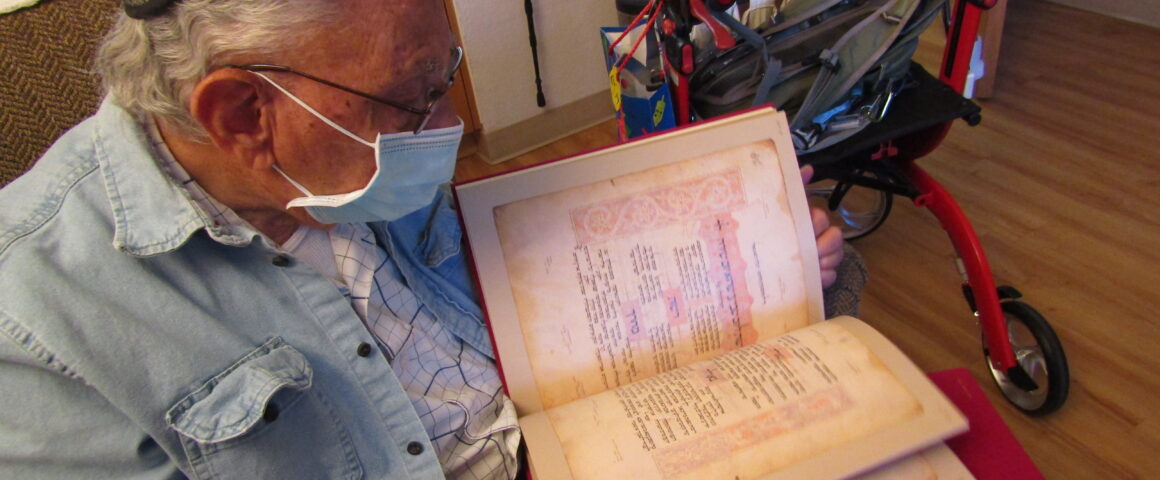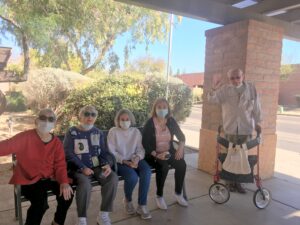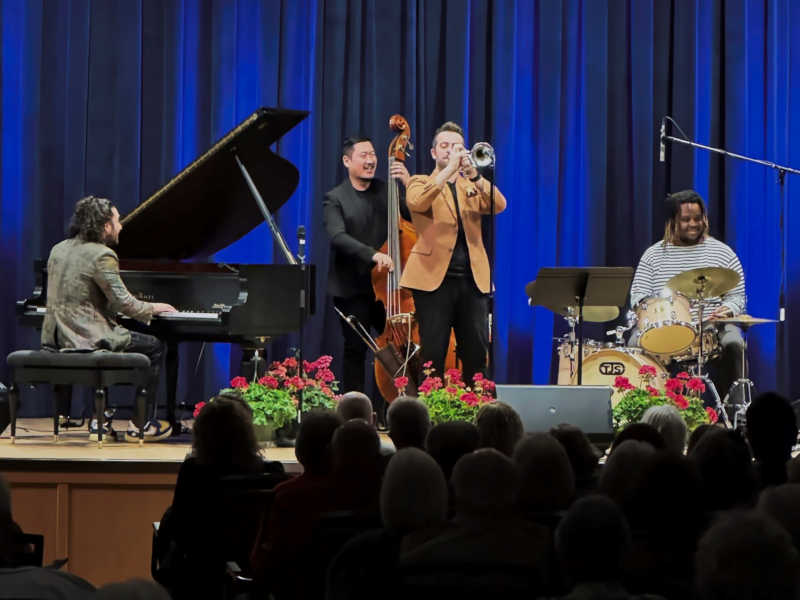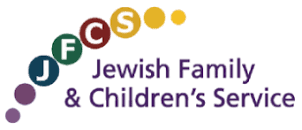By Michelle Talsma Everson
Photos Courtesy of Handmaker Jewish Services
When you talk to Rabbi Richard Safran, it’s obvious from the light in his eyes and the gratitude weaved throughout his stories that he has lived a blessed life—and that he continues to bless others every day.
“It’s been a wonderful life. I’ve been able to travel and serve congregations both big and small,” Rabbi Safran says. “It’s been awesome, and I’ve seen God in all forms.”
A resident at Handmaker Jewish Services for the Aging’s senior living center in Tucson, Rabbi Safran is an intricate part of the Handmaker community. He’s the person that other residents go to for advice (whether Jewish-related or not) and he performs the Shabbat blessing at the Shabbat dinners every week. He served as the Tucson Jewish Community’s chaplain for many years, visiting with Handmaker and other members in the community who were ill, before training the next few chaplains that have served there.
“We are grateful for Rabbi Safran on so many levels,” says Nanci Levy, Community Outreach Coordinator for Handmaker. “He’s had a huge impact on the overall community—not just at Handmaker, but in Tucson, too.”
Rabbi Safran’s impact throughout his life reaches a global scale. He shares that he has a “history of traveling,” having been to Israel ten times, and other impactful destinations, including all over Europe, Egypt, the U.S., and more. He loves traveling and outdoor activities—having climbed peaks everywhere from Mount Sinai to Tucson’s nearby mountains.
He grew up in New York City where his parents owned a kosher deli and says that he got his start as an Air Force assistant chaplain during the Korean War. He was ordained by the Hebrew Union College — Jewish Institute of Religion in 1960. In addition to his congregational duties, he was also a chaplain at prisons, hospitals, and veterans’ hospitals for decades as well in Fort Wayne, Indiana and Tucson.
“Being a hospital chaplain requires a certain set of skills, an intuitiveness and a way with people,” Rabbi Safran explains. He was first certified by the Association of Mental Health Chaplains and later by the National Association of Jewish Chaplains. He adds that he served three congregations before becoming a congregational rabbi for Congregation Achduth Vesholom, where he served for 24 years before moving to Tucson in 2000. “I retired and moved here with Lois, my wife of 60 years, of blessed memory, to help her health condition,” he says.
“We had an amazing life together and a wonderful family,” he shares about Lois and his two sons. “We saw things I never thought were possible—from Israel to Egypt to Tucson and beyond.” He adds that, during the summers while his sons were growing up, the family would travel across the U.S., hiking, camping, and making priceless memories. His son Jonathan passed away last year, but his son Daniel continues to support and assist him in many ways.
With a career and life that spans everything from classes overseas, holding hands in hospital rooms, to lectures in Alaska, Rabbi Safran views his journey as, “God opening door after door.”
“Doors opened up all of the time for me, and I’d go through those doors, and they’d take me wonderful places—I’m still going wonderful places, even from here in Tucson,” he says. “Life sets the path for most of us, and it’s up to us to go down in.”
When asked about advice for the local Jewish community, Rabbi Safran had nothing but encouraging words. “Don’t give up hope,” he says. “No matter what is happening, there are wonderful people all around. Look in their eyes and you will see God.”







